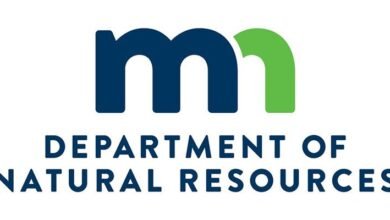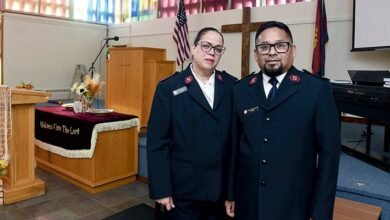Minnesota lawmakers add new fraud defenses, leaving others for future consideration – Austin Daily Herald

Minnesota lawmakers add new fraud defenses, leaving others for future consideration
Published 3:45 pm Friday, July 11, 2025
By Dana Ferguson
For the first time in a month, there was again legislative activity at the state Capitol as a House committee met Tuesday to talk about safeguards for Medicaid.
Three weeks after the fatal shooting of Rep. Melissa Hortman and her husband and the wounding of state Sen. John Hoffman and his wife, state lawmakers got back to business. Rep. Kristin Robbins, who chairs the House Fraud Prevention and State Government Oversight Committee, solemnly noted that a tragedy within the Legislature is still top of mind.
“We just want to acknowledge that that is still a process we are all dealing with and grieving, and we continue to pray for the Hortman family and Senator Hoffman,” Robbins said. “It’s important for us as a body to show the public that the work of the Legislature continues. And I do think Speaker Hortman was a very practical person focused on the institution of the Legislature, and I think that we are honoring her by continuing our work.”
The leading Democrat on the committee also said feelings were still raw. But Rep. Dave Pinto agreed it was OK to have the discussion. Hortman would have wanted it, he said.
“The work that we do here is really about people and the impact on people. And I feel like she pushed us so often to be thinking in those terms,” Pinto said. “It actually feels appropriate to me that we’re having this hearing at this time on Medicaid.”
Pinto said the impact of health care in helping people succeed in other facets of life is the proper focus.
Medicaid is a topic of considerable attention lately given major legislation approved this month that will lead to considerable pullbacks and changes in eligibility. But this hearing was centered around what the state is doing to head off abuses in the health program and other state-funded programs.
Fraud and efforts to stop it have been central issues all year for lawmakers. Some new detection measures and tools to give agencies power to cut off funds to fraudsters were implemented. But not everything proposed got through.
Among those that did pass were a new state crime barring kickbacks and a measure to freeze state payments if a recipient is suspected to have committed fraud. The goal is to flag people or organizations that have committed fraud or are suspected to have misused public dollars. Those organizations would be on a sort of “do not serve” list at the state, which could prevent those who misuse grant dollars in one area from applying for and getting state money for other services.
State agencies will be able to put up to a 60-day pause on funding for organizations believed to have committed fraud. State employees involved in managing grants will also undergo extra training. More people will have an obligation under law to report potentially unlawful use of public funds. The laws will also expand whistleblower protections for state employees who call out potential fraud.
After Tuesday’s hearing, Robbins, a Maple Grove Republican, touted the list of fraud prevention measures that lawmakers approved.
“Those things really will help, but there’s a lot more work to do,” she said, noting her committee would continue to meet during the interim.
Pinto, of St. Paul, agreed the new laws should help. But he said lawmakers also would be wise to put more money toward teams that investigate fraud, like those in the attorney general’s office.
“The AG came to us and said, ‘Please expand that office.’ And in the end, that didn’t happen, or at least if it is, it’s because the AGs office has to shift money from something else in their base,” Pinto said. “So that’s something I definitely think that we should move forward on.”
An effort to pay for additional investigators in the Attorney General’s Medicaid Fraud Control Unit didn’t make it into law this session. Republicans said they might give it another look next year.
For them, the big item left out was a proposal to establish an independent state Office of the Inspector General.
“This Office of Inspector General would be housed in the executive branch and really have teeth, and it’s really a miss,” Robbins said, noting the measure passed the Senate but got stuck in the tied House. “That had bipartisan support, and it’s really unfortunate we didn’t get it done this year, but we are going to go back and fight for that.”
Temporary Department of Human Services commissioner Shireen Gandhi initially opposed the bill, citing concerns about another inspector general’s office potentially stepping on the toes of DHS investigations or potentially jeopardizing their standing with the federal government. She said talks should continue before the next session begins.
“I think if legislation comes forward again, we would like to work closely with you so that we can make sure that our federal requirements work,” Gandhi told the committee.
State Sen. Heather Gustafson, DFL-Vadnais Heights, carried the bill in the Senate and said talks are ongoing about ironing out potential concerns. She said she’s confident it will pass in 2026.
“I do think that this is something that’s going to keep coming up. I think it’s still something that most Minnesotans see as common sense,” Gustafson said. “And unfortunately, fraud is not going to go away on its own.”
Lawmakers know they’ll have another challenge next year outside of policing Medicaid for fraud. The federal changes will alter Medicaid eligibility and could reduce reimbursements for states and care providers.
The 2026 legislative session starts Feb 17.
Source link




